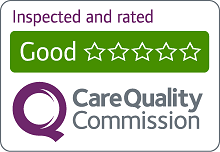Care plans are an essential part of how social care works in the UK. Put simply, these documents outline the specific needs and preferences of individuals requiring professional care. This could be for elderly people struggling to live independently, individuals living with disabilities or chronic illnesses who require additional support, or patients who require temporary care at home following a hospital discharge, for example.
In this guide, IP Homecare explains why these documents are so crucial for patients, family members and caregivers alike in this industry. To do this, we outline what care plans are and what they include. We also look at how often these documents need to be reviewed and updated. Finally, we highlight the differences between NHS care plans, issued following a hospital discharge, and those created by private live-in care providers, such as IP Homecare.
What is a care plan?
First things first. In order to understand why these documents are so important, understanding what they are is essential.
In its simplest form, a care plan is a formal document created collaboratively by the care recipient, their family (if applicable), and healthcare professionals – be that the NHS or private care providers. Good care plans should detail the individual’s needs, goals of care, and the specific support services required to ensure their well-being. This plan acts as a roadmap, guiding everyone involved in their care and ensuring a consistent and effective approach.
What is in a care plan?
Although it’s important to note that all care plans are bespoke, they will usually follow a familiar format. With this in mind, a typical care plan should consider various aspects of an individual’s situation and will therefore typically include:
- Personal details: Basic information like the individual’s name, date of birth, next of kin, and emergency contact details.
- Medical history: A summary of existing medical conditions, medications, allergies, and any relevant past surgeries or procedures.
- Assessment of needs: Details of the individual’s current physical, emotional, and cognitive needs, such as mobility, continence, communication, and daily living skills.
- Goals of care: Realistic and achievable objectives to improve their well-being, set collaboratively with the care recipient.
- Care and support services: Specific services required, such as personal care assistance, medication management, meal preparation, or social interaction support.
- Communication plan: Preferred methods of communication for the care recipient and their family with the care team.
- Risk management: Identifies potential risks associated with the individual’s condition and care actions, along with strategies to mitigate those risks.
How often should care plans be reviewed?
Care plans should never be static documents. This means they should be reviewed and updated regularly to reflect any changes in the individual’s needs or circumstances. The frequency of care plan reviews will naturally depend on the individual’s situation. For someone with relatively stable needs, reviews might occur every few months. However, for individuals with complex or rapidly changing needs, more frequent reviews – perhaps every few weeks – might be necessary.
Here are some common situations that might trigger a care plan review:
- Changes in health: A new diagnosis, a hospital admission, or a worsening of an existing condition.
- Changes in functional ability: Difficulties with daily living activities like bathing, dressing, or mobility.
- Changes in mental capacity: Cognitive decline or changes in communication abilities.
- Changes in personal circumstances: Moving to a new home, changes in family support, or bereavement.
Can a hospital discharge without a care plan?
Here in the UK, NHS hospitals have a legal and ethical obligation to ensure a safe and appropriate discharge plan is in place before releasing a patient. This plan might involve ongoing care at home, a transfer to a care facility, or a combination of both. For this reason, a care plan is typically required.
The specific details of the care plan will vary depending on the individual’s situation. However, it should always include the sections outlined above. For hospital discharge-specific plans, there may be an increased focus on details such as new medication management, temporary equipment and adaptations management, and transportation plans for any follow-up appointments.
It’s important to understand that while NHS care plans may differ slightly from those created by private care providers like IP Homecare, they both serve the crucial purpose of ensuring a smooth transition from hospital to home and promoting the best possible care for the individual.
So, there you have it – our comprehensive guide to care plans. However, if you take just one thing away from this guide, let it be the significance these formal documents have when it comes to the quality of care an individual will receive. Whether you’re receiving care at home through a service like IP Homecare or are hoping for NHS organised care, having a well-defined care plan in place promotes a smooth and effective care experience. Simple as that.
If you have any questions regarding care plans or require support with creating or reviewing a plan for yourself or a loved one, please don’t hesitate to contact IP Homecare today. Our team of experienced professionals is here to guide you through the process and ensure your care needs are met effectively.
Sources:
